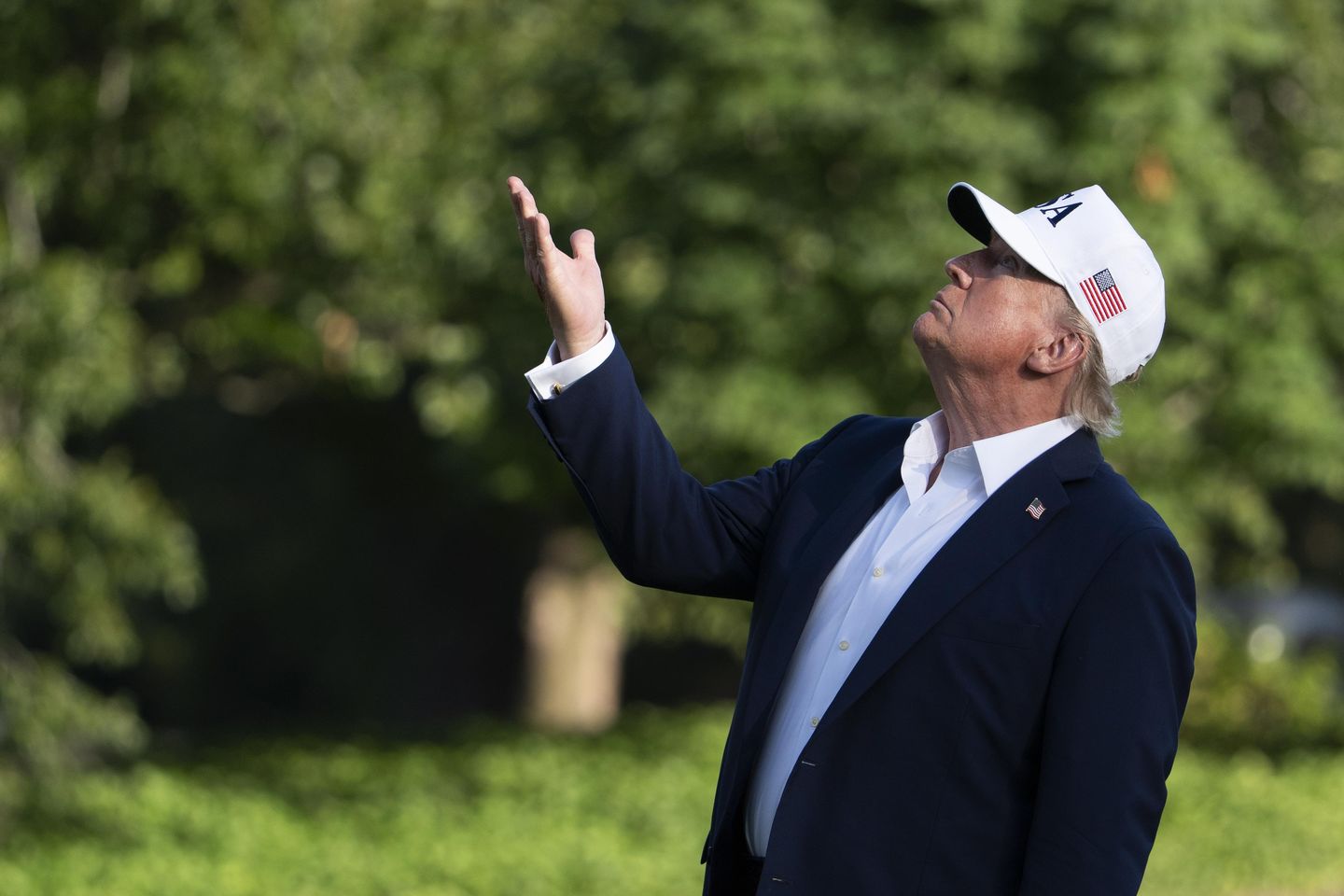
President Trump said Thursday he will impose a 35% tariff on Canadian goods, a major development in the U.S. trade relationship with its northern neighbor.
Mr. Trump, writing on Truth Social, complained about Ottawa’s treatment of the U.S. and faulted its efforts to stem fentanyl trafficking across the border.
“Instead of working with the United States, Canada retaliated with its own Tariffs,” Mr. Trump said in a letter to Canadian Prime Minister Mark Carney. “If Canada works with me to stop the flow of Fentanyl, we will, perhaps, consider an adjustment to this letter.”
The decision will reverberate through markets and is a bit of a shock to the burgeoning relationship between Mr. Trump and Mr. Carney, who is relatively new to the job and recently held cordial meetings with Mr. Trump.
Since the start of his second term, Mr. Trump has needled Canada over its economic dependence on the U.S., saying it ought to become the 51st state.
Yet Mr. Trump and Mr. Carney seemed to be working toward a trade deal by July 21, after Ottawa agreed to rescind a digital services tax that had affected U.S. companies.
Instead, Mr. Trump fired off a letter – similar to one he’s sent over 20 countries this week– that complained about tariffs and non-tariff trade barriers to U.S. exports.
U.S. stock futures fell after Mr. Trump announced the Canadian tariffs.
Canada was the top destination for U.S. exports and third-largest source of U.S. imports in 2024. The two countries’ automotive and energy sectors are particularly intertwined.
Already, Canadian goods were subject to a 25% tariff, though many products were exempted under the U.S.-Mexico-Canada trade agreement.
Mr. Trump negotiated that trade pact during his first term, though it’s been effectively torn up by his second-term complaints about Canadian trade behavior.
In his letter, Mr. Trump said the new tariffs were separate from sector-specific tariffs that hit things like automobiles, steel and aluminum.
The U.S. trade deficit with Canada was $63.3 billion in 2024, meaning Canadian producers sold a higher value in goods to the U.S. market than American producers sent to Canadian consumers.
The Washington Times reached out to the Canadian prime minister’s media office for comment.
The tariff letter to Canada is the latest sign that Mr. Trump is becoming more aggressive in his approach to trade, reasoning tariffs bring in billions in revenue and haven’t produced the type of doomsday inflation that some economists predicted.
Earlier this week, he sent a letter to Brazil imposing a 50% tariff on their goods, in part because of the South American country’s prosecution of ex-leader Jair Bolsonaro.

















